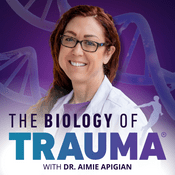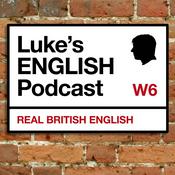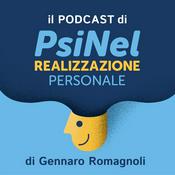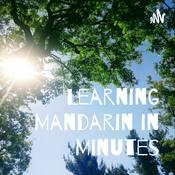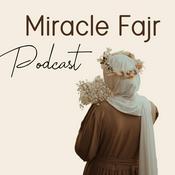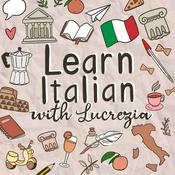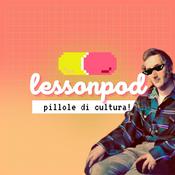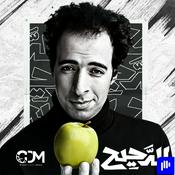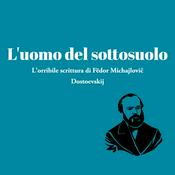206 episodi
- ➡️ Get the full episode breakdown at Biology of Trauma® Podcast - Episode 160: How Creativity Rewires Your Nervous System with Adam Roa
What if the key to healing isn't more therapy—but creativity? Adam Roa's poem "You Are Who You've Been Looking For" reached over 250 million people. But before that poem existed, Adam spent 25 years emotionally shut down. He didn't remember his childhood sexual abuse until age 30. His journey reveals why creativity creates neurological safety for emotions that were once too overwhelming to feel. Creativity isn't about talent—it's about pattern disruption. When you turn pain into a poem or painting, you force your brain to view that experience differently.
This episode explains why safety must come before expression and how the creative process rewires neural pathways when talk alone can't reach what's stored in the body.
In This Episode You'll Learn:
(01:00) What poetry has to do with your nervous system's capacity to heal
(03:45) Why Adam's viral poem reached 250 million people
(05:30) How childhood trauma stayed hidden for 25 years
(08:00) Why acting became Adam's first safe space to feel emotions
(12:00) The moment poetry became a survival mechanism after heartbreak
(17:00) How creativity rewires neural pathways associated with traumatic events
(22:00) Why one poem can play multiple roles in your healing journey
(27:00) What happens when you write for yourself but release for others
(32:00) Dr. Aimie shares her song "Letter to the Me" publicly for the first time
(47:00) Adam performs "You Are Who You've Been Looking For"
(54:00) The journey from viral success to learning what self-love actually means
Resources/Guides:
The Biology of Trauma book — Get your copy here
Adam Roa's New Book — Crazy Love explores the journey of learning to truly love yourself. Available May 2025.
Adam's Websites — adamroa.com
Dr. Aimie's Music Channel — Songs of the Inner World on YouTube
Free Guide: The Chronic Freeze Response — Understanding why your body stays stuck even when you want to move
Related Podcast Episodes:
Episode 82: Using Biological Rhythms to Recover From Trauma with Dr. Leslie Korn
Episode 119: Transforming Trauma Into Joy & Purpose with Gregg Ward - ➡️ Get the full episode breakdown at Biology of Trauma® Podcast - Episode 159: Why Trauma Blocks Your Stem Cell Repair System
What if we knew how to repair cellular damage from stress and trauma? Stem cells are your body's repair system—replacing 50-70 billion cells every day. But chronic inflammation from trauma creates what Dr. Dan Pardi calls a "noisy neighborhood" where repair signals can't get through.
Dr. Pardi is the Chief Health Officer at Qualia Life Sciences, where he researches what actually allows cellular healing to happen. In this episode, we explore why trauma accelerates biological aging and what creates the conditions for repair.
In This Episode You'll Learn:
(01:00) Why understanding the Biology of Trauma® matters for cellular health
(03:00) What "capacity" actually means—and how resilience changes across the lifespan
(08:00) How Dan's own injury led him to study health optimization
(15:30) Why Dean Ornish's lifestyle intervention worked when single interventions fail
(19:30) What's missing from healthcare for trauma recovery
(24:00) How stem cells function as the body's repair mechanism
(28:00) Why inflammation from trauma blocks stem cell activity
(32:00) How sleep and biological rhythms affect stem cell repair
(36:00) Why college athletes needed 5.5 months to recover from extreme fatigue
(43:00) What makes trauma recovery take longer than we expect
(47:00) How to support stem cell health naturally
Resources/Guides:
The Biology of Trauma book — Get your copy here
Foundational Journey — Six weeks to clean up your internal environment so repair becomes possible. This is where we create the conditions for cellular healing.
Qualia Life Sciences — Learn more about stem cell wellness at www.qualialife.com/draimie Coupon Code: DRAIMIE (listeners get an additional 15% off any Qualia order)
Related Podcast Episodes:
Episode 84: Cellular Resilience And Post-Traumatic Growth with Ari Whitten
Episode 82: Using Biological Rhythms to Recover From Trauma with Dr. Leslie Korn - You know it's not good for you. You do it anyway. Then you ask yourself why.
Late-night scrolling when you promised you'd sleep. Sugar after dinner when you said you'd stop. The fight you picked that you didn't need to pick. We call it lack of willpower. But willpower isn't the problem.
This is the biology behind the main episode this week with addiction policy expert Dr. Kevin Sabet. He shared what we've been getting wrong about marijuana and addiction. Now I'm taking you deeper into what's actually happening in your brain when you can't stop doing what you know is harming you.
In this episode you'll hear more about:
(01:00) Why "why am I doing this to myself" is a dopamine question.
(02:30) The truth about dopamine — it's not just high or low. It's both.
(03:00) How drama and interpersonal chaos become dopamine sources.
(04:30) Why the more you push the lever, the less dopamine you get.
(05:00) Dopamine isn't about pleasure. It's about remembering what's important.
(07:00) How early attachment wires dopamine to connection — or to danger.
(09:00) The definition of addiction: going somewhere other than safe human connection to feel okay.
(10:30) The three biochemical imbalances common in addictive patterns.
(11:00) How brain inflammation lowers dopamine and raises glutamate — the double whammy.
(12:30) Why bribes actually work for dopamine-driven behaviors.
The craving isn't a character flaw. It's a signal. When dopamine is low at baseline, your nervous system will find ways to get it. The question is whether we repair the biology or white-knuckle through life.
Resources/Guides:
Download the 3 Most Common Biochemical Imbalances Guide — The biochemical imbalances Dr. Aimie mentions that disrupt normal dopamine activity.
Biology of Trauma book — Available everywhere books are sold. Get your copy
→ Watch the video version on YouTube
→ Check out the main episode - Episode 158: Marijuana, Addiction, and the Body: What We've Been Getting Wrong with Dr. Kevin Sabet
Try this practice this week: Notice when you're reaching for something to take the edge off. Before you act, pause. Ask: "Is my baseline dopamine low right now? What is my body actually looking for?" Awareness interrupts the automatic loop.
Leave a review on Apple Podcasts, Spotify, or YouTube. It helps others find trauma-informed care. - ➡️ Get the full episode breakdown at Biology of Trauma® Podcast - Episode Marijuana, Addiction, and the Body: What We've Been Getting Wrong
If you've watched a family member struggle with addiction, you know how helpless it can feel. Treatment programs that don't work. Policies that seem disconnected from reality. Debates about legalization versus criminalization that never address what actually helps someone recover.
Dr. Kevin Sabet has spent decades advising three presidential administrations on drug policy—watching decriminalization debates, marijuana legalization, and the opioid crisis unfold. He started asking a different question: What if we looked at what actually works? His book One Nation Under the Influence examines why current addiction policies are failing—and what Iceland, Portugal, and Hawaii figured out that we're missing.
In This Episode You'll Learn:
[01:00] Why marijuana is the most misunderstood drug in America
[04:00] How today's marijuana is genetically bred to be far more potent
[08:00] The critical difference between decriminalization, legalization, and commercialization
[12:00] Why the promises of marijuana legalization haven't materialized
[17:00] How addiction responds to incentives unlike any other brain condition
[20:00] What "harm reduction" actually means—and why there's so much confusion
[24:00] Why some addiction physicians recommend marijuana for opioid recovery—and what the research shows
[30:00] What Iceland's prevention model actually did differently
[33:00] How Portugal's system works—and why it's not legalization
[35:00] Hawaii's HOPE program: why 2 days in jail changed behavior when years of probation didn't - Can you do all the therapy and still have brain fog? Yes. Can you talk through your past and still have chronic fatigue? Absolutely.
Here's the tension. We've been told that processing trauma means talking about it. That resilience means surviving hard things. But what if your body is still holding what your mind thinks it released?
I go deeper into this with Marie Demasio in Episode 157. She shared how she'd done so much work after losing her son. She thought she was past it. Then she visited our mutual friend, Dr. Bryce Applebaum. He told her that her vision was a mess. Her brain was inflamed.
This was never just about the mind. It's about what the body holds.
In this episode you'll hear more about:
(01:45) Why brain fog is one of the most common blocks to living from safety.
(03:22) What neuroception is and how your body's dashboard works.
(04:48) How brain inflammation sends ongoing cues of danger.
(06:15) Why dissociation and fog are survival strategies, not dysfunction.
(08:30) The cycle of caffeine, sugar, and pushing through brain fog.
(10:05) Why I assess brain inflammation first in my program.
(11:42) The specific supplements that reduce brain inflammation.
The body holds what the mind thinks it released. When we address brain inflammation, we remove a cue of danger. Then the nervous system has a chance to believe it's safe.
Resources/Guides:
Get Dr. Aimie's Brain Inflammation Supplement Protocol — The exact supplements mentioned in this episode including N-acetylcysteine, Neuro-Mag, turmeric, resveratrol, and apigenin. Access the protocol
Download the Brain Inflammation Assessment
Biology of Trauma book — Available everywhere books are sold. Get your copy
Free Guide: The Essential Sequence - Discover why doing the right things in the right order is key to releasing trauma.
→ Watch the video version on YouTube
→ Check out the main episode this follows: Episode 157: Soul Contracts and the Biology of Grief with Marie Demasio
Try this practice this week: Notice your brain fog. Before reaching for caffeine or sugar, pause. Ask: "Is my body sending me a danger signal right now?" That awareness is the first step.
Leave a review on Apple Podcasts, Spotify, or YouTube. It helps others find trauma-informed care.
Altri podcast di Scolastico
Podcast di tendenza in Scolastico
Su The Biology of Trauma® With Dr. Aimie
People are done dancing around the topic of trauma. They're ready to face this square-on. None
of the current systems are getting to the root of the issue in the current model. Their biology has
been affected on a cellular level, and that is now what's preventing the important work that
they're trying to do.
The Biology of Trauma® podcast is the missing piece to that puzzle. It's a practical living manual for the human body in a modern, traumatizing world. Join your host, Dr. Aimie Apigian—a medical physician and expert in attachment, trauma, and addiction—as she challenges outdated trauma paradigms and introduces a new model for healing.
Sito web del podcastAscolta The Biology of Trauma® With Dr. Aimie, FUORI DAL BUIO e molti altri podcast da tutto il mondo con l’applicazione di radio.it

Scarica l'app gratuita radio.it
- Salva le radio e i podcast favoriti
- Streaming via Wi-Fi o Bluetooth
- Supporta Carplay & Android Auto
- Molte altre funzioni dell'app
Scarica l'app gratuita radio.it
- Salva le radio e i podcast favoriti
- Streaming via Wi-Fi o Bluetooth
- Supporta Carplay & Android Auto
- Molte altre funzioni dell'app


The Biology of Trauma® With Dr. Aimie
Scansione il codice,
scarica l'app,
ascolta.
scarica l'app,
ascolta.
